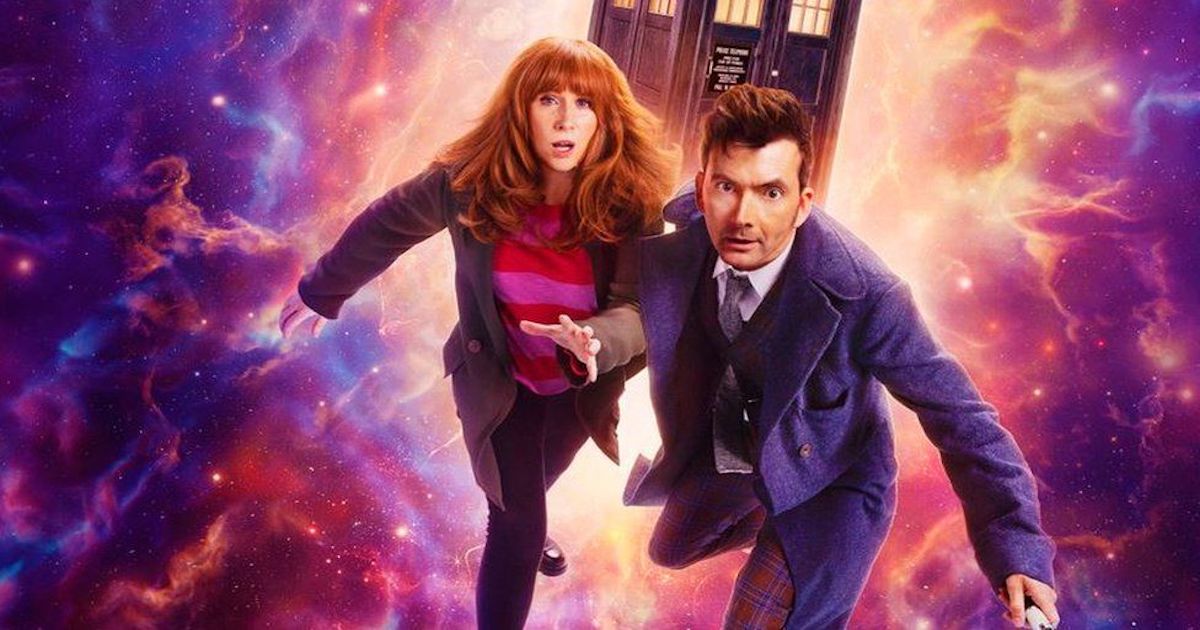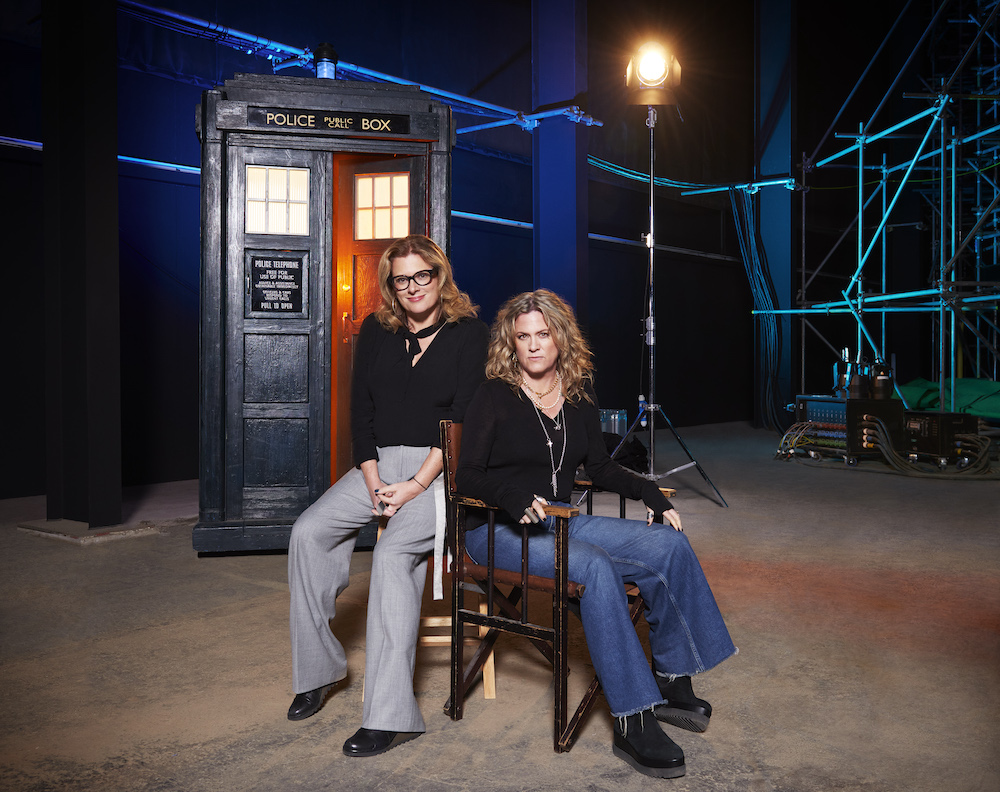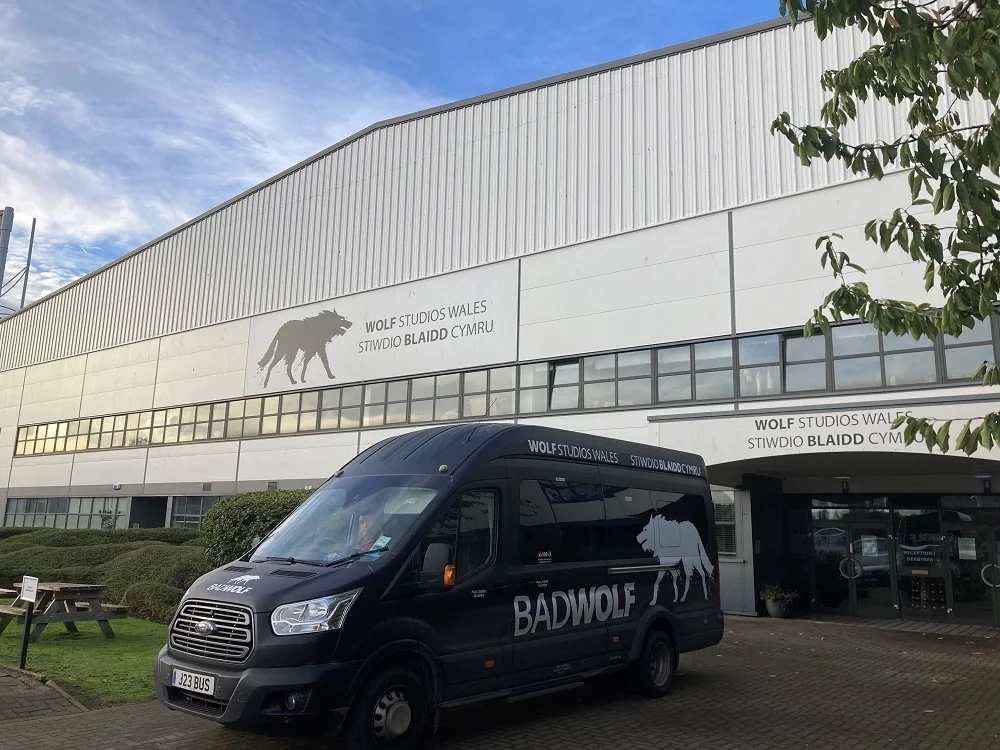How Wales brought Doctor Who to the eyes of the world

Chris Pyke
After 60 years Doctor Who is at home, in as much as a Time Lord can every really be home.
After all, home is where the (two) hearts are, and that is now firmly in Cardiff Bay.
While there is Sarah Jane Smith and Rose Tyler, Amy Pond and Ace, perhaps the two most important women in the Doctor’s life could be Jane Tranter and Julie Gardner.
They’ve been very good companions not only to Doctor Who but to the creative industries of Wales.
In life friendships burn bright, then the parties go in different directions before finding each other years later, and while they have grown and changed they still pick up exactly where they left off.
That, in many ways, is what has happened with Tranter and Gardner and Doctor Who, and you can add showrunner Russell T Davies.
It was at the end of the last century that the Swansea-born screenwriter Davies started a campaign to bring back his favourite TV show.
At this time Tranter was controller of drama commissioning for BBC One, Gardner was the recently appointed head of drama for BBC Wales, and had recently worked on the drama Casanova with Davies.
The BBC was keen to move productions out of London across the nations and regions, and this led to the decision to revive Doctor Who in Wales.
“I think timing is a funny thing because it had such a huge impact on the whole cultural conversation of the UK,” said Tranter.
“It was deliberately such an important thing in Wales. And Julie and Russell just built and built and built from it. Then we all went off and did something else. “
The success of the show saw spin-offs Torchwood and The Sarah Jane Adventures filmed in Cardiff, and along with Casualty moving from Bristol and the Welsh language show Pobol y Cwm a studio was built in Roath Lock.
In 2009 Tranter and Gardner moved to Los Angeles to run a production company for BBC Worldwide. They were tasked with finding a suitable location to film the series Da Vinci’s Demons, and they convinced Starz, the US network producing the fantasy drama series, to film the show in Wales. This led to the former Ford and Visteon factory on the outskirts of Swansea being converted into a studio.
Down the road in Pencoed, there is Dragon Studios, which had originally started as a Richard Attenborough led project called Valleywood before being massively scaled back, and Pinewood opened up a facility just outside Cardiff. International shows, such as Bastard Executioner, Will, The Collection, and Britannia, were being lured to Wales. But the way productions came in, filmed their shows and left did not sit right with Tranter and Gardner.

In 2015 Tranter and Gardner started their own production company, Bad Wolf, named after a story arc from Doctor Who.
“It was in recognition of the fact that Doctor Who had been the foundation of so much,” said Tranter.
They converted the former Nippon Glass factory in Cardiff Bay into Wolf Studios Wales. Here they developed and created A Discovery of Witches and His Dark Materials, and then two years ago they got the phone call from BBC.
“It’s very easy to look at it and think all roads were leading to this moment, and often when I walk down the studio I think ‘Was that the reason that we built this?’, but it wasn’t. The reason we built this was in order to provide a permanent base for Bad Wolf so that it could grow. And, not only Bad Wolf’s production slate, but could grow the creative industries within Wales.
“I would say that it doesn’t feel like a natural homecoming, as that makes it sound too cozy, comfy or easy to say that. We’ve changed. We’ve all changed radically, Julie, me, and Russell. Bad Wolf has changed radically since it started in 2015 to how it was when the BBC approached us a couple of years ago to say, would you do this.
“I think it just feels like an onward progression for us, Doctor Who the show as it now is with the BBC and Disney Plus, with all of us bringing our different learnings to the table is radically different.
“So, I would say it’s part of an onward journey rather than it’s all come full circle, as that suggests it a sort of closure. It’s like the end of the beginning rather than the end.”
Gardner added: “I think you can see a progression of work and life. The markers were Doctor Who in 2004, then you get to Torchwood and the Sarah Jane Adventures, where you could see there was a crew base and an infrastructure that could sustain multiple shows.
“Then you get to DaVinci’s Demons which we pushed to come to Wales. We knew what Wales could do, what the crews do, and what the show could be here. The idea of bringing an American show here, no one else would have done that, it was an odd and brilliant thing.
“Then you get to Bad Wolf and the incredible and diverse way we work in Cardiff.”

Bad Wolf, while creating these shows, has partnered with big US production companies, HBO with His Dark Materials, AMC with A Discovery of Witches, MGM+ for The Winter King, which will be on ITVX next month, and Doctor Who has brought them together with Disney Plus.
“We did the same thing with Disney Plus that we do with everybody, which is essentially we put them on the train, bring them here, open the studio doors, and show them everything we’re doing,” said Tranter.
“Wolf Studios is as good as any studio you’ll find not only in the UK but anywhere in Europe, more than that Wolf Studios is filled with a Bad Wolf signature of hard work, passion, dedication, creativity. It seeps from every single solitary pore, from every single, solitary person who works there.
“We’ve done this before, when we’ve had American partners who thought they’d maybe come in on one of our shows, you bring them over and show them what we’re doing and they fall in love with it, as everybody does because it is a special.”
With many industries leaving Wales the importance of the creative sector has, and is growing more important.
The industry is growing. In September Seren Studios, formerly Pinewood, was purchased by Great Point Studios with plans to double its capacity. Great Point had been leasing the site and said that part of the expansion project would include four state-of-the-art studios.
The creative industries generated a £3.8bn turnover in 2022, making 5.3% of total Welsh GDP. There are almost 10,500 active enterprises and – including freelancers – between 68,000 and 90,000 people working in the creative industries in Wales.
With a new Doctor, and Disney on board, the budget is bigger, which in today’s crowded market is needed. When the Doctor first appeared 60 years ago there were only three channels to choose from, now there are hundreds, and time slots mean little.
Tranter and Gardner believe that Doctor Who is a show that can bring the family together.
“Lots of people don’t watch [TV] live, almost on point of principle,” said Tranter.
“It’s a small exercise of independence, but I think Doctor Who might be different. For 60 years, with only a very few small exceptions, it’s been in that early Saturday evening slots and it’s about the start of the Saturday night.”
Gardner added: “For a show like this you would hope an audience would unite. They’d still be the iPlayer, of course, but you’d this would be an event.”
What the iPlayer has also offered is the Whoniverse, which was launched earlier this month ahead of the anniversary, and fans can go to discover old shows.
Gardner explained: “That’s a whole different experience, I think, for the audience where they can go to one place and find everything from the past, and everything current, and they’ll find all the supporting programming and the documentaries. That’s amazing to me, that an audience can have that depth of experience and really go down, frankly, the rabbit hole.”
The Doctor returns on Saturday, with a familiar face, as David Tennant, the 10th Doctor, returns to the role, becoming the 14th Doctor, for three specials before Ncuti Gatwa, who is no stranger to filming in Wales having starred in the Netflix hit series Sex Education, will make his debut appearance as the Fifteenth Doctor.
And, so, as a new generation is set to hide behind the sofa as all manner of villains chase and torment the Doctor and their companion the audience will be all over the world and their eyes will be on Wales.
Support our Nation today
For the price of a cup of coffee a month you can help us create an independent, not-for-profit, national news service for the people of Wales, by the people of Wales.







Awful inherently British Sci-fi. Dr Who, apart from being rubbish, says nothing about Wales or Welsh culture, we should be making our own shows. Why did we allow England to dump it on our shores? I cringe every time I pass the sign to Cardiff with a Dalek on it.
England didn’t dump it. Successful welsh showrunner Russell T Davies resurrected it and made it great. The money made from Doctor Who has helped fund more home grown TV too. The expertise of the production team and crew (also largely local. Read the credits. You will see many Sians, Rhodris, Gwenllians) can take those skills from Dr Who to other productions. It’s not compulsory to like it, but is it necessary to trash it?
Also it’s a fun and inclusive show. Don’t you like fun and kindness?
Exactly, Welsh talent behind the screen is being used to benefit and promote English ideals in the form of “British”. It’s called rubbing salt in the wound.
Well I don’t often comment here, but as someone born only three years before “Rose” hit our screens, I’ve always known Doctor Who to be a Welsh thing. I’m proud of it. When it was being made here, it went from a slightly clunky, quote-unquote “quaint” bit of 20th century sci-fi, to one of the biggest shows of the 2000s. No, it’s not particularly reflective of Welsh culture, but it’s a show that doesn’t really reflect ANY real cultures to a massive extent. And anyway, when I was a kid watching The Unquiet Dead for the first time, it was… Read more »